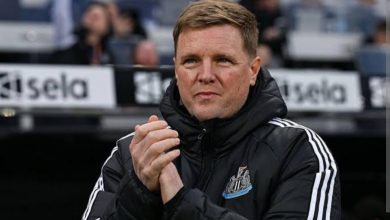Elon Musk Addresses Rumors of Investing £262 Billion in English Football
Elon Musk, the world’s wealthiest individual and a disruptor in industries ranging from technology to space exploration, has recently sparked interest in the footballing world. Speculation has grown about whether Musk, with a net worth of £262 billion, might follow in the footsteps of Hollywood stars Ryan Reynolds and Rob McElhenney by investing in an English football club. However, Musk has made his stance on the matter abundantly clear, putting an end to swirling rumors.
The Reynolds and McElhenney Effect
The story of Ryan Reynolds and Rob McElhenney’s acquisition of Wrexham AFC has captivated the footballing world. The two actors turned a small, historic Welsh club into a global sensation by combining strategic investment, media savvy, and an authentic connection with the club’s community. Their success not only brought Wrexham back into the English Football League but also set an example of how new owners could transform a football club, no matter its size.
For Musk, the Wrexham story undoubtedly demonstrates the cultural and commercial potential of football. Reynolds and McElhenney have proven that even smaller clubs can become international brands with the right approach. However, Musk’s financial and visionary ambitions operate on an entirely different scale. While a Wrexham-like project might seem small potatoes to a billionaire like Musk, the prospect of him taking over a prominent English club has captured the imagination of fans and pundits alike.
Musk’s Statement: A Clear Stance
Despite the intrigue, Musk has reportedly dismissed the idea of investing in English football. He has stated that, while he admires the passion and community spirit that football embodies, he does not intend to follow Reynolds and McElhenney’s path. Musk’s reasons for avoiding football appear rooted in practicality and his ongoing commitments.
As the head of Tesla, SpaceX, and several other ventures, Musk’s focus remains on industries that align with his broader mission to advance humanity. From sustainable energy solutions to colonizing Mars, Musk’s ambitions leave little room for the demands of running a football club. His business ventures require long-term strategic planning and substantial capital allocation, both of which would likely be diluted by investing in the unpredictable world of football.
The Road Not Taken
Had Musk opted to enter English football, his involvement would have been a game-changer. With a fortune dwarfing even the wealthiest football club owners, Musk could have revolutionized the sport. From funding state-of-the-art facilities to implementing cutting-edge technologies, his entry could have marked a new era in football.
Some fans have speculated that Musk might still explore opportunities outside traditional football ownership. Perhaps he could invest in grassroots football, fan engagement technologies, or initiatives that use football as a tool for social change. These ideas would align more closely with Musk’s innovative and philanthropic tendencies.
Conclusion
Elon Musk’s dismissal of investing in English football highlights the unique challenges and opportunities of the sport. While Reynolds and McElhenney’s success with Wrexham has inspired many, Musk’s priorities lie elsewhere. Yet, the prospect of a figure like Musk entering the footballing world continues to spark curiosity and excitement. For now, though, it seems the beautiful game will remain one arena where Musk’s disrupti
ve touch won’t be felt.









